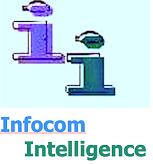According to VC Christina Cacioppo of Union Squares Ventures, today represents a very good time for new Internet Entrepreneurs. Access to capital is easier, there is a proliferation of tech incubators and a new trend is also very important: work is shifting toward a peer-to-peer model.
In a recent blog post she mentions:
"The first two decades of the modern internet broke industries built on distribution monopolies (e.g. music, news) and facilitated coordination between the consumer and the provider without the need for a middleman (e.g. hotels, car rentals.) The same will happen for a large fraction of our work, especially in cases where the work is standardized or employers "distribute" their workers to pools of customers.
One reason to create firms is the coordination and signaling problems of situations with imperfect information and transaction costs. As technology increases information flows and decreases transaction costs, individuals can leave their old employers and strike out on their own. Their livelihoods will still depend on providing valuable services in exchange for fees, but they'll do so as freelancers - and on their own, they'll capture more of the value generated by their work.
Just as blogs allowed talented writers to build audiences without being affiliated with large media organizations, and as Twitter and Tumblr allowed news- and tastemakers to succeed outside of established news or media properties, new web services will allow individuals to engage with customers without needing to work for a firm. These free agents, disaggregated and newly empowered, can promote and sustain themselves with new tools: Opez caters to service professionals, like bartenders and hairdressers, and allows them to build followings independent of their employers, while Vayable and SideTour provide marketing and transaction-processing for neighborhood tour guides. Hiptic helps graphic designers promote their work, while Zerply helps creative professionals do the same, and InterviewStreet lets programmers show off their skills.
As technology creates new free agents, it's also changing the notion of "work" to be less time- and location-specific. This is especially true of work that can be done easily at a distance. Workers who can't differentiate themselves using their reputation will be commoditized. This summer, web services were launched that allow you to order up a proofreader (Kibin), blogger (Contently), tutor (LearnBop), language partner (Verbling), car ride (Ridejoy), science researcher (Science Exchange), cooking instructor (Culture Kitchen), mystery shopper (SpotCheck), or transcriptionist (Mobile Works) from your browser. The Mechanical Turkification of work has begun.
Between identified, liberated individuals and the nameless, faceless drones of Mechanical Turk lies identity: does it matter who performs the task at hand? If the worker's background, skills, or experience matter, there's likely to be higher variance in demand for a particular person's services, and free agents will be sought after and chosen by reputation on services built for those purposes. Less-skilled people are likely better suited for tasks for which identity doesn't matter, and other marketplaces that don't include a concept of reputation will provide access to a global pool of workers."
A peer-to-peer model of work means that individuals can replace many SMEs or large firms in the delivery of specific mandates. With specialisation, individuals can offer a better ratio Quality/price than certains firms. With the Internet, mobile Internet and social networks, there are many opportunities for future Internet entrepreneurs.
Louis Rhéaume
Infocom Intelligence
louis@infocomintelligence.com
Twitter: @InfocomAnalysis
For more info read: http://www.usv.com/2011/11/what-comes-next.php

A blog on the convergence of info-communications industries: communications, computing, electronics, entertainment, publications and education. Strategic, technological and financial analysis. English and French blog. Cette chronique traite de l’évolution des industries de l’information et des communications et couvre des aspects stratégiques, technologiques et financiers, comme l’économie du savoir et de l’innovation. L’auteur est Associé principal de Infocom Intelligence.
Labels
finance
(58)
strategy
(39)
innovation
(36)
technology
(29)
Internet
(25)
mobile internet
(25)
stratégie
(21)
applications
(20)
business models
(19)
mobile technologies
(17)
venture capital
(17)
Apple
(13)
télécommunications
(13)
consumer internet
(12)
media
(12)
telecommunications
(12)
mergers and acquisitions
(11)
video games
(11)
wireless
(11)
technologie
(10)
Android
(9)
technologies de l'information et des communications
(9)
téléphones intelligents
(5)
Subscribe to:
Post Comments (Atom)
No comments:
Post a Comment